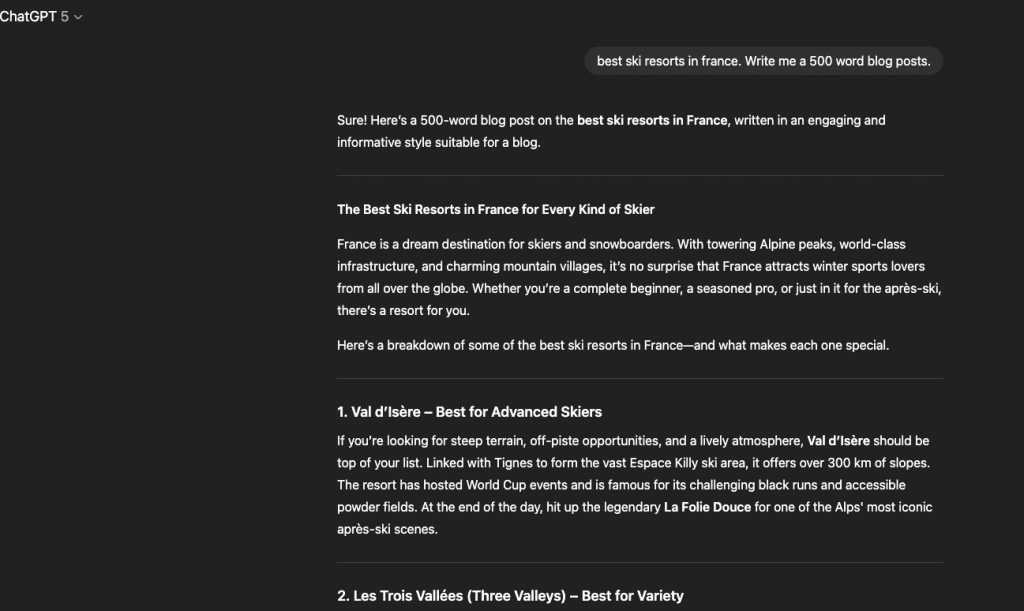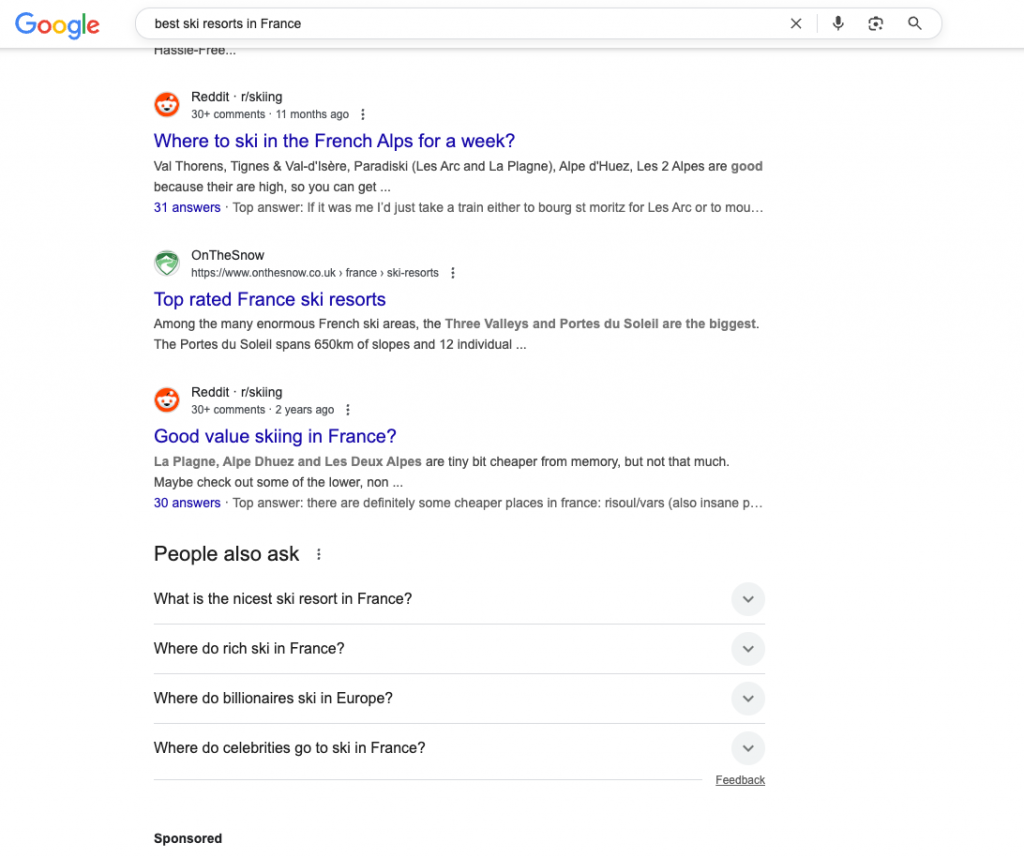Most people get link building horribly wrong.
They waste a ton of money. They get hung up on the wrong signals. Or they just give up completely because they’re petrified of making a mistake and tanking their website.
Sound familiar?
Today I want to give you the only rule you need to follow for building backlinks. This is going to make things so much easier.
You can just think of this one simple thing. Everything else will fall into place and actually deliver profitable SEO results for your link-building campaigns.
Whether you’re doing this yourself for your own business or working with SEO clients, here it is.
Don’t want to read… I got you:
The Problem: Everyone’s Obsessing Over the Wrong Metrics
Most people worry about the wrong things when they’re building links.
They think way too much about domain authority and domain ranking. You know, those metrics from tools like Semrush, Moz, and Ahrefs.
Sure, those can be useful as indicators. But they shouldn’t be your first consideration when building links. Here’s why:
- They can be inflated
- They can be manipulated
- They often mean absolutely nothing
At the end of the day, Google doesn’t use them to pass authority or relevance to your site. They’re just vanity metrics in most cases.
So you end up with worthless links that have high DR and DA ratings. You waste money on ineffective links because you’re using the wrong metrics to judge good sites from bad ones.
People get so hung up on this. They waste time and money looking for the “perfect backlink” or the “perfect website.” They never actually get anywhere with their link building.
Or they go the other way and just fill it with trash.
The ChatGPT Content Problem
Here’s what’s happening now. We’re trying to build brands online. We want to create entities that Google and the web will actually value.
But most people are surrounding their brands with junk backlinks and junk content.
The typical approach goes like this: “I want a site with high DA or DR that’s relevant to my site. I’ll go to ChatGPT and pump out content.”
They write a 500-word post. Get the link. Publish it. Done.
They think that’s good enough to build authority.
So they go to ChatGPT and say something like, “Best ski resorts in France. Write me a 500-word blog post.” They get something generic from ChatGPT. It doesn’t really matter because it’s going on someone else’s site. They just want to work fast.

It’s lazy and results in below-average results. Plus, it’s an insult to the rest of your brand and marketing efforts.
The Only Rule You Need: Rank Your Backlinks
What should you be doing instead?
You need to think about this one thing: “Rank your backlinks.”
That’s it. That’s all I want you to think about when building backlinks.
This approach will take care of everything else. It’ll stop you worrying about DA and ChatGPT-generated slop. Instead, you’ll build effective link campaigns that actually work.
But what does this mean exactly?
What “Rank Your Backlinks” Actually Means
Simple. Create content that shows up in Google search and ranks for keywords related to your brand or topic.
There’s no better signal than Google actually ranking the content that contains your backlink. It’s a guaranteed positive signal. Especially if it’s a relevant keyword to what you want to rank for.
That’s guaranteed authority. Guaranteed relevance all around.
Here’s what I want you to think about: When you’re writing guest posts or getting link insertions, ask yourself: “Can I rank this blog post or this link on Google?”
You’ll start to see whether things are working. You’ll see the pages your links are on generating keywords in your research tools.
You might also see something interesting in your analytics. When you look at where your traffic comes from, you’ll start seeing referrals from websites where you have guest posts and links.

Users are actually clicking through to your website and following your links.
Most people don’t aim for this. But it’s a clear signal that what you’re doing is working. You’re bringing relevant traffic and relevant signals to your website.
Why This Rule Solves Everything
Earlier I said, “Don’t worry about DA and DR and avoiding spam and link farms.”
If you’re thinking about ranking your guest post, it naturally takes care of all that stuff.
Because if you’re trying to rank a blog post, you automatically consider these factors.
You think: “Is this a spammy website where I’m going to try and put a blog post? Well, if it is, it’s probably not going to rank.”
“Does it have any authority or relevance to actually rank on Google? Yes? Great. No? Well, that answers that question.”
Additional Benefits You Get for Free
This approach helps build your brand. As we just saw, it actually generates traffic to your website and stays relevant to your site.
You don’t have to worry about Google penalties either. Google won’t penalize sites and posts that it wants to rank.
You get all the benefits you’re looking for. No need to filter through endless metrics when building your guest posts.
The Advanced Strategy: Hub and Spoke Link Building
Let me show you how to get even more out of your blog posts.
If you’ve learned SEO, you know this rule: don’t link out to competitors in the SERPs.
You don’t want to link to other pages that rank ahead of you. You don’t want to link to pages you’re competing with in search results from your blog post.
Why? Because you’re sending signals to Google saying, “Actually, I’m referencing this page. It’s better than me. Go there for information.”
It gives that page a signal to rank above your site.
Flip It on Its Head
Now, take that rule and apply it to guest posting. We can flip it completely.
We can say we want to link and rank for the same or similar keywords as our main page. You can create a hub and spoke method for your page.
Here’s how it works:

Publish 6, or 7 guest posts on contextually relevant sites. Use sites with varying authority and quality. Point all those backlinks back to your brand, your website, your information.
You’re telling Google: “Hey, we’re going to try and rank all these guest posts somewhere. They don’t have to be page one. They could be page two or three. But we’re all targeting roughly the same keyword. We’re all recommending this particular source.”
This gives you an even bigger boost. It also works for niche edits and link insertions.
Finding Opportunities in the SERPs
Here’s a practical example. Let’s say your main keyword is “best ski resorts in France.”
Here’s what you do:
- Take “best ski resorts in France”
- Google that keyword
- Go through the search results
- Look at all these places where you want to be featured
Maybe you could get mentioned in a Reddit thread. You could go through all these results and see if you can get mentioned on any of these pages.

You could reach out to people to include you. Or add your own information to these pages where possible.
Of course, that’s not always possible. People are protective of their websites. But it’s a good starting point.
You can also write your own posts. Get them published on similar sites or even the same sites if they accept guest posts.
Getting Better Rates (Or Even Free Placements)
This approach has another benefit. If you’re writing SEO-friendly guest posts for other people’s sites, you might get better rates.
If you’re like me and have examples of how you’ve ranked and generated traffic for other sites with this content, you might not have to pay as much to publish. You might even get it for free.
Here’s what you can say:
“Hey, I’ve written this great blog post. It’s pretty much guaranteed to rank and bring you traffic for this easy keyword. Can you just publish it for me? You get great content. I get a link. Everyone wins.”
This works particularly well in your industry. Especially with people you know who you can call up and ask to publish a post on their business website.
Finding Long-Tail Keywords for Guest Posts
This part is really easy. Go to a site like Answer Socrates. Type in your main keyword.
Let’s use our ski resorts in France example. Search for all the long-tail phrases related to this keyword.
Scroll down and you’ll find bottom-of-funnel content too. This would be very attractive to people.

Pick out a really easy keyword. “Ski resorts in France beginning with M” probably doesn’t have much competition. Or “ski resorts in France and Switzerland.”
Start writing content on that. Or pick those keywords and pitch them for your guest post.
Speeding Up Content Creation (The Right Way)
I said earlier: don’t just use AI slop from ChatGPT. But you can lean on AI to write your guest posts and improve them from there.
Use a little human editing to speed up the process. You can actually get your guest post out in less than half an hour.
There’s a great tool I like called Koala Writer. I don’t use it for my own internal content. But for guest post content, it works really well.

I’m trying to get good enough content to rank and be decent quality. This supports my brand around the web. I don’t want to spend hours crafting this myself or having a writer do it.
How I Use Koala Writer
You can use this tool to:
- Select different models
- Put your target keyword in there
- Select SEO optimization (I love this feature)
- Use AI-powered optimization that analyzes the search to create your article outline
- Choose the article length
- Set it to third person (second person’s probably best)
- Enable deep research
I like to tick “use outline editor” and a few other options at the bottom.
When you use the outline editor, it gives you a preview of the article first. You can steer how you want the article to look. Sometimes AI goes wild and goes in completely the wrong direction.
This gives you a really quick way to write your guest post. You can even add sections if you want to mention something specific. You can make sure those sections are included in relevant areas. Whether it’s brand mentions or best-of listicles.
It generates your outline with prompts throughout everything. It’s probably pretty good and ready to go. It has FAQs at the bottom and everything.
You can refresh this and edit these areas. It shows relevant keywords you want to talk about. Plus entities you want to mention throughout different sections.
Hit “write article” and it writes the whole thing.

The Human Touch
Usually I take that article and get it into Google Docs. I do some human editing. I improve it a little bit. I up the quality one step more.
I’m always thinking about building quality. I’m not just trying to generate slop to fill link metrics up.
I’m trying to generate real results for the people I’m working with. And for the links I’m building for clients.
The Bottom Line
Stop overthinking link building. Stop obsessing over vanity metrics that don’t matter.
Focus on one thing: can you rank the content that contains your backlink?
If the answer is yes, you’re building quality links that will actually move the needle for your SEO.
If the answer is no, you’re wasting your money.
It’s that simple.


